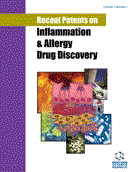Abstract
Background: New-Onset Refractory Status Epilepticus (NORSE) refers to a clinical presentation in a patient without active epilepsy or other existing relevant neurological disorder, with new onset of refractory status epilepticus in the absence of a clear acute or active structural, metabolic, or toxic cause. Febrile Infection-Related Epilepsy Syndrome (FIRES) is a subset of NORSE that requires a febrile infection between 24 hours and 2 weeks prior to the onset of refractory status epilepticus, with or without fever at the onset of status epilepticus, and with no restriction to the age of the patient. The literature on FIRES is scarce.
Objective: This article reviews the pathophysiology, clinical features, and various treatment modalities in the treatment of FIRES.
Methods: A Medline/Pubmed search was conducted using Clinical Queries with the key terms "Febrile Infection-Related Epilepsy Syndrome", “FIRES”, "New-Onset Refractory Status Epilepticus" and “NORSE”. The search strategy included meta-analyses, randomized controlled trials, clinical trials, reviews and pertinent references. Patents were searched using the key term "FIRES", “NORSE” and “Febrile Epilepsy Syndrome” from www.google.com/patents, www.uspto.gov, and www.freepatentsonline.com.
Results: FIRES almost invariably begins with a mild nonspecific febrile illness in an otherwise healthy individual. Twenty-four hours to two weeks later, seizures begin and quickly become very frequent and worsen, becoming status epilepticus. Seizures can be simple motor, complex partial or secondary generalized. The exact etiology is not known. It is possible that the syndrome is caused by an inflammatory or autoimmune mechanism.
Seizures in FIRES are notoriously very difficult to treat. Treatment modalities include, among others, various antiepileptic drugs, ketogenic diet, intravenous corticosteroids, intravenous immunoglobulin, and burst-suppression coma. The outcome is poor; most children are left with significant cognitive disability and refractory epilepsy. Recent patents for the management of FIRES are discussed.
Conclusion: FIRES is a rare epilepsy syndrome of unclear etiology in which children, usually of school age, suddenly develop very frequent seizures after a mild febrile illness. Seizures in FIRES are typically difficult to treat. The prognosis is poor.
Keywords: Antiepileptic drugs, corticosteroids, fever, immunoglobulin, ketogenic diet, new-onset refractory status epilepticus, FIRES, NORSE, seizures.
 253
253 70
70 5
5 1
1


















